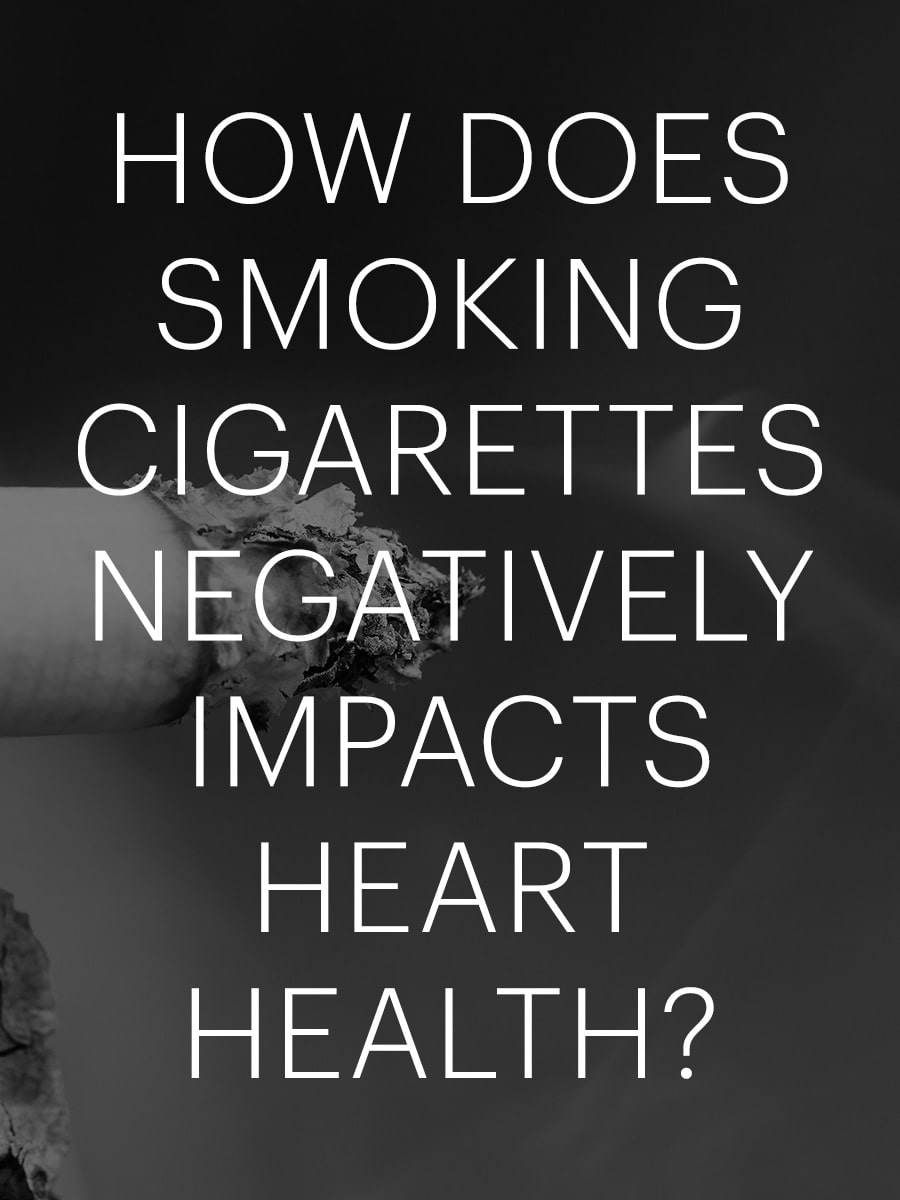There’s an abundance of scientific research that links smoking tobacco to cardiovascular disease.1 This is because the toxic substances found in tobacco products will gradually wreak havoc on your heart and vessels.
However, it is not all doom and gloom! By quitting smoking (and it’s never too late) there’s a good chance that over time, your risk of heart disease can return back to baseline.

The effects of tobacco products on the cardiovascular system
Cardiovascular heart disease (CHD) describes a set of disorders that affect the heart or blood vessels. Unfortunately, smoking tobacco can contribute to the development of CHD, as well as multiple other conditions.
Some of the other possible outcomes of smoking tobacco products include:
Atherosclerosis
Atherosclerosis is a condition characterized by the narrowing and stiffness of blood vessels. When a plaque forms inside the coronary vessel, it may lead to coronary artery disease. And if it’s affecting a brain vessel, a stroke will follow.
Scientists found that cigarette smoke exacerbates atherosclerosis by reinforcing the state of inflammation.2
Another way that smoking causes atherosclerosis is by leading to high blood pressure. The latter is known to put extra strain on the vessels.
Arrhythmia
Arrhythmia describes irregular heartbeats.
Because smoking leads to fibrosis (i.e., scarring) of the cardiac tissues, it may cause arrhythmia.3 One category of arrhythmias that you’re more likely to develop due to smoking is tachycardiac, an abnormal increase in heart rate. This is due to nicotine’s heart rate-boosting properties.
Coronary Artery Disease
Coronary artery disease is the final complication of atherosclerosis. When the blood vessels get completely clogged, we start dealing with myocardial infarction, better known as a heart attack.
Because smoking increases blood pressure and causes atherosclerosis, it is a top risk factor for heart attacks.
Heart Failure

The good news is that once you quit smoking, your risk of heart disease starts to drop gradually. For instance, heart rate levels begin to drop back to normal even as soon as 12–24 hours after you quit smoking.4
What’s more, researchers found that 12 months after smoking cessation, your risk of coronary artery diseases by 50%.5 Jump forward to 15 years without smoking, and your risk will become comparable to nonsmokers.
Quitting smoking also lowers your risk of strokes significantly. It only takes 4 years before you once again have the same risk as a nonsmoker.6
In all, smoking cigarettes and other tobacco products increases your risk of heart disease significantly. (It is one of the major modifiable risk factors.) But by quitting smoking, your heart and vessels can recover!
- https://www.ncbi.nlm.nih.gov/pmc/articles/PMC7399440
- https://www.ncbi.nlm.nih.gov/pmc/articles/PMC3755365
- https://www.nature.com/articles/s41598-018-34145-9
- https://www.lung.org/quit-smoking/i-want-to-quit/benefits-of-quitting
- https://www.cdc.gov/tobacco/quit_smoking/how_to_quit/benefits/index.htm
- https://www.fda.gov/tobacco-products/health-effects-tobacco-use/how-smoking-affects-heart-health




